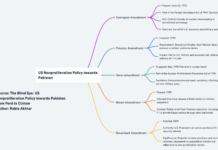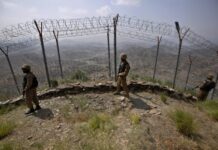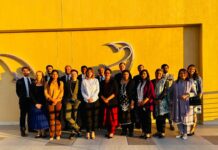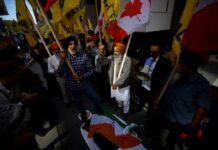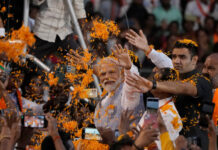Shahzad Akhtar
In a February 6 attack, five Pakistani soldiers were killed by the Tehrik-e-Taliban (TTP) in Kurram district of Khyber-Pakhtunkhwa province. In another attack on January 18, the TTP claimed an attack on police officials in Pakistan’s capital, Islamabad. Pakistan’s Interior Minister Sheikh Rashid Ahmed has warned of more such attacks. Since August last year, Pakistan has witnessed a spectacular increase in terrorist attacks, when the Afghan Taliban secured victory against the U.S. Pakistani hopes of tough action against the TTP by the Afghan Taliban dashed, after they freed TTP militants from the Afghan prisons. These developments raise an important question: to what extent has the TTP revived itself to become a serious challenge to Pakistan’s domestic security? It is important to note, in this regard, that the TTP can potentially become a serious threat to Pakistan’s security if it continues to perpetrate terror attacks, spread its ideology, and recruit people for further terrorist operations.
Operation Zarb-e-Azb, launched in June 2014, effectively eliminated TTP’s financial and organizational structure, which seriously limited the organizational operational capability. Decapitation of the TTP leadership through U.S. drone attacks also dealt a severe blow to the organization. In addition, schism and infighting within the group, started after the death of TTP leader Hakimullah Mehsud in 2013 in a drone attack, further damaging TTP’s overall strength. Serious blows to the group’s cohesion, strength, and territorial control forced the TTP leadership and its members to flee across the border in Afghanistan.
Notwithstanding weak operational capability and internecine conflict, the TTP succeeded in perpetrating several attacks against the Pakistani state. For example, the 2018 national election witnessed TTP’s attacks against politicians in addition to its targeting of the national polio drive in Pakistan. Health workers were attacked which led the government to stop the national campaign. In the last few years, particularly under the leadership of Noor Wali Mehsud, the group has seen a new vigor which is demonstrated through the revival of its operational networks and accelerating terrorist attacks against the Pakistani state.
The TTP’s current leader, Noor Wali Mehsud, took the leadership after the death of Fazal Ullah in a drone strike, in June 2018. To reinvigorate the organization, Wali focused on improving the internal discipline of the group and restrained members to attacks civilians. TTP’s indiscriminate targeting in the past drew ire from the Pakistani people that translated into public support for tough operations against the group. Additionally, hailing from the Mehsud tribe, Wali as a TTP leader attracted several militants belonging to the Mehsud tribe who rejoined the group, thus enhancing its strength. Several other splinter groups including Jammat-ul-Ahrar (JuA) and Hizb ul- Ahrar (HuA) joined hands with the TTP in August 2020. Both JuA and HuA perpetrated several terrorist attacks within Pakistan, such as a suicide attack on a well-known Sufi shrine in Lahore in May 2019 and targeted a mosque in Quetta in January 2020.
The process of TTP’s unification transcends tribal affiliation. Several Punjabi Taliban groups also pledged allegiance to the TTP leadership. Most prominent among them are Amjad Farouqi group who enjoyed close relations with al-Qaeda, and the Usman Saifullah group which splintered from Lashkar-e-Jhangvi (LeJ). About these mergers, Amira Jadoon, an expert on violent organizations, argues “cooperation between groups can often enhance groups’ longevity and their ability to plan and execute deadly operations.” After regaining strength from these mergers, the TTP indulged in extortion, intimidation, and targeted attacks in Pakistan’s border areas near Afghanistan. Analyst Daud Khattak reported TTP increasing involvement in settling local disputes, collecting money, and targeting their opponents in different parts of the erstwhile Federally Administered Tribal Areas ( FATA) , particularly Waziristan and Bajaur districts. The TTP has previously used similar tactics when they controlled most parts of FATA almost a decade ago.
TTP’s reorganization, coupled with its ability to unite its splinter groups, has significantly consolidated the group’s operational capability. This is evidenced from TTP’s increasing number of terrorist attacks in Pakistan. A U.N. report published in February 2021 noted that the TTP perpetrated more than 100 cross-border attacks between July and October 2020. By taking JuA and HuA, two al-Qaeda affiliates, and an LeJ faction into its fold, the TTP has reclaimed its capability to conduct terror attacks in parts of Pakistan, other than its traditional stronghold of FATA districts, such as Punjab and provincial capital cities of Quetta and Karachi where these groups maintain their militant networks. A suicide bombing attack in a luxury hotel in Quetta on April 21, 2021, aiming at China’s Ambassador to Pakistan, is an example of TTP’s enhanced operational capability beyond FATA. This attack killed four people, however, the Chinese Ambassador remained unscathed because he was not present in the hotel premises.
With a view to revitalizing its violent campaign against Pakistan and to expand its support base, the TTP has moved beyond the traditional jihadi groups and attempted to entice sub-national groups engaged in fighting against the Pakistani security forces. The TTP has legitimized the Baloch ethnic struggle while highlighting their grievances and glorifying their battle against the Pakistani state. This move would, in turn, possibly earn legitimacy for TTP’s struggle against the state beyond its areas of origin. It is important to highlight that Baloch nationalist groups demands are secessionist in nature while TTP’s demands are largely couched in religious terms, that is, implementation of Sharia law in the country consistent with the group’s interpretation of Islam. Similarly, recording interviews of FATA districts residents by TTP media wing in 2019, and blaming the Pakistan military for committing atrocities, including extrajudicial killings and forced displacement, , are other examples of the group’s endorsement of varied grievances.
Likewise, the TTP has also supported the Pashtun Tahafuz Movement’s challenge to the state which is also a secular ethno-nationalist group. These measures by the TTP can be contextualized in its pursuit of enhancing its appeal among different groups opposed to the state and to remain relevant in the anti-state discourse.
After the hasty U.S. exit from Afghanistan and the Afghan Taliban taking over Kabul, the TTP and other violent religious groups in Pakistan have seemingly been emboldened. A religious extremist cleric, Abdul Aziz, who once headed the infamous Red Mosque in Islamabad and previously endorsed the TTP struggle, celebrated the Taliban victory in Afghanistan by hoisting their flag in Islamabad and threatening the Pakistani authorities for reprisals if opposed. The TTP also renewed its pledge of allegiance to the Afghan Taliban and vowed to replicate their struggle, to fight against the Pakistani state for the implementation of the same style of Sharia in the country. The Afghan Taliban’s actions further bolstered TTP morale and resolve by freeing hundreds of TTP militants, including the former TTP deputy leader, Maulvi Faqir Mohammad, from Afghan jails who were arrested by the Afghan security forces in 2013. Right after his acquittal from prison, Faqir announced to continue his struggle in Pakistan through violent means for the enforcement of Islamic laws in Pakistan.
Encouraged by the Afghan Taliban triumph against the superpower and release of its militants from prison, the TTP has accelerated its violent campaign by executing around seventy terrorist attacks against Pakistani security forces and civilians. However, the majority of the attacks has targeted the security forces, something which demonstrates TTP’s inclination to operate in an insurgency style. Brian Glyn Williams, an Islamic History professor at the University of Massachusetts, echoed a similar observation while maintaining that the Afghan Taliban’s spectacular victory against the most powerful state in the world led many jihadi organizations, including the TTP, to believe that a similar success can be achieved in Pakistan by using the same tactics.
The PTI-led government in Pakistan has responded to the increasing number of attacks by engaging the TTP in negotiations, facilitated by the Afghan Taliban. With a view to demonstrating its commitment to initiating formal talks, the Pakistani government offered to exonerate TTP’s militants if they pledged to abandon violence against the state, surrender their weapons, and accept the country’s Constitution as the supreme law. The TTP remained steadfast in demanding the implementation of Sharia in the country while agreeing to a short-term ceasefire. Some analysts viewed Pakistan’s attempted negotiations with the TTP as an approach that provided and provides legitimacy to the group’s extremist narrative. However, the ceasefire proved short-lived and the TTP renewed its violent campaign.
As part of its counterterrorism efforts, Pakistan needs to take effective steps to stop the resurgence of the TTP. Pakistan has previously relied heavily on the military approach which proved effective in dismantling the TTP, but it somehow aggravated the existing feelings of marginalization among the people of erstwhile FATA. Solely relying on kinetic means is, it must be stressed, not as effective a policy as mixing politics, development, and the use of force is. Thus, Pakistan needs to adopt a population-centric approach that focuses on addressing the grievances of the people to prevent them from falling prey to TTP’s ideological appeal. Also, it is important for the government to address genuine concerns of locals who have been adversely affected by Pakistan’s own war on terror. Pakistan can only ignore those at its own peril.
Dr. Shahzad Akhtar is Assistant Professor at the School of Integrated Social Sciences, University of Lahore.



